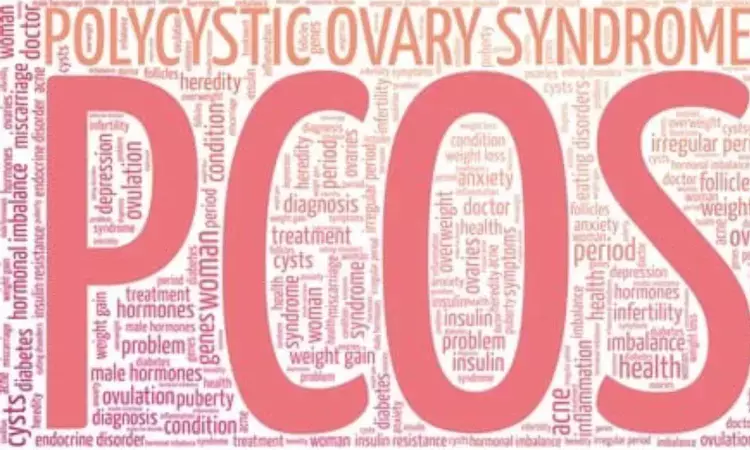- Home
- Medical news & Guidelines
- Anesthesiology
- Cardiology and CTVS
- Critical Care
- Dentistry
- Dermatology
- Diabetes and Endocrinology
- ENT
- Gastroenterology
- Medicine
- Nephrology
- Neurology
- Obstretics-Gynaecology
- Oncology
- Ophthalmology
- Orthopaedics
- Pediatrics-Neonatology
- Psychiatry
- Pulmonology
- Radiology
- Surgery
- Urology
- Laboratory Medicine
- Diet
- Nursing
- Paramedical
- Physiotherapy
- Health news
- Fact Check
- Bone Health Fact Check
- Brain Health Fact Check
- Cancer Related Fact Check
- Child Care Fact Check
- Dental and oral health fact check
- Diabetes and metabolic health fact check
- Diet and Nutrition Fact Check
- Eye and ENT Care Fact Check
- Fitness fact check
- Gut health fact check
- Heart health fact check
- Kidney health fact check
- Medical education fact check
- Men's health fact check
- Respiratory fact check
- Skin and hair care fact check
- Vaccine and Immunization fact check
- Women's health fact check
- AYUSH
- State News
- Andaman and Nicobar Islands
- Andhra Pradesh
- Arunachal Pradesh
- Assam
- Bihar
- Chandigarh
- Chattisgarh
- Dadra and Nagar Haveli
- Daman and Diu
- Delhi
- Goa
- Gujarat
- Haryana
- Himachal Pradesh
- Jammu & Kashmir
- Jharkhand
- Karnataka
- Kerala
- Ladakh
- Lakshadweep
- Madhya Pradesh
- Maharashtra
- Manipur
- Meghalaya
- Mizoram
- Nagaland
- Odisha
- Puducherry
- Punjab
- Rajasthan
- Sikkim
- Tamil Nadu
- Telangana
- Tripura
- Uttar Pradesh
- Uttrakhand
- West Bengal
- Medical Education
- Industry
Bariatric Surgery Boosts Ovulation Rates in Women with PCOS and Obesity: Lancet

Researchers have found that bariatric surgery significantly improves ovulation rates in women with polycystic ovary syndrome (PCOS) and obesity, compared to traditional medical therapy and behavioral interventions. This could have profound implications for managing infertility associated with PCOS. A recent study was published in The Lancet by Suhaniya N S and colleagues.
Polycystic ovary syndrome (PCOS) is the most common cause of anovulatory infertility, with obesity exacerbating reproductive complications. Despite this, effective obesity management in women with PCOS remains a clinical challenge. Observational studies have suggested that bariatric surgery might improve ovulatory cycles and fertility rates. However, its efficacy compared to behavioral modifications and medical therapy has not been tested in a randomized trial until now.
In a multicenter, open-label, randomized controlled trial, 80 women aged over 18 with a BMI of 35 kg/m² or higher and a diagnosis of PCOS, according to the 2018 international guidelines, were recruited. Participants were randomly assigned to either vertical sleeve gastrectomy or behavioral interventions and medical therapy. The primary outcome was the number of biochemically confirmed ovulatory events over 52 weeks, assessed through weekly serum progesterone measurements. The study, conducted between February 2020 and February 2021, included an intention-to-treat population for the primary endpoint and a per-protocol population for safety analyses.
• Of the 80 participants, 40 were assigned to each group. There were seven dropouts in the medical group and ten in the surgical group.
• The surgical group had a median of 6 ovulations (IQR 3.5–10.0) compared to 2 (0.0–4.0) in the medical group.
• Women in the surgical group experienced 2.5 times more spontaneous ovulations than those in the medical group (incidence rate ratio 2.5 [95% CI 1.5–4.2], p < 0.0007).
• However, the surgical group also reported more complications, with 24 adverse events (66.7%) compared to 12 (30.0%) in the medical group, though none resulted in long-term sequelae.
The findings suggest that bariatric surgery is more effective than medical care for inducing spontaneous ovulation in women with PCOS, obesity, and oligomenorrhoea or amenorrhoea. This increased rate of ovulation could enhance the prospects of spontaneous fertility, addressing a significant unmet clinical need.
Bariatric surgery presents a promising intervention for improving ovulation and fertility outcomes in women with PCOS and obesity. Despite the higher incidence of adverse events, the benefits in terms of spontaneous ovulation and potential fertility enhancement are significant.
Reference:
Samarasinghe, S. N. S., Leca, B., Alabdulkader, S., Dimitriadis, G. K., Davasgaium, A., Thadani, P., Parry, K., Luli, M., O’Donnell, K., Johnson, B., Abbara, A., Seyfried, F., Morman, R., Ahmed, A. R., Hakky, S., Tsironis, C., Purkayastha, S., le Roux, C. W., Franks, S., … Miras, A. D. (2024). Bariatric surgery for spontaneous ovulation in women living with polycystic ovary syndrome: the BAMBINI multicentre, open-label, randomised controlled trial. Lancet, 403(10443), 2489–2503. https://doi.org/10.1016/s0140-6736(24)00538-5
Dr Riya Dave has completed dentistry from Gujarat University in 2022. She is a dentist and accomplished medical and scientific writer known for her commitment to bridging the gap between clinical expertise and accessible healthcare information. She has been actively involved in writing blogs related to health and wellness.
Dr Kamal Kant Kohli-MBBS, DTCD- a chest specialist with more than 30 years of practice and a flair for writing clinical articles, Dr Kamal Kant Kohli joined Medical Dialogues as a Chief Editor of Medical News. Besides writing articles, as an editor, he proofreads and verifies all the medical content published on Medical Dialogues including those coming from journals, studies,medical conferences,guidelines etc. Email: drkohli@medicaldialogues.in. Contact no. 011-43720751


